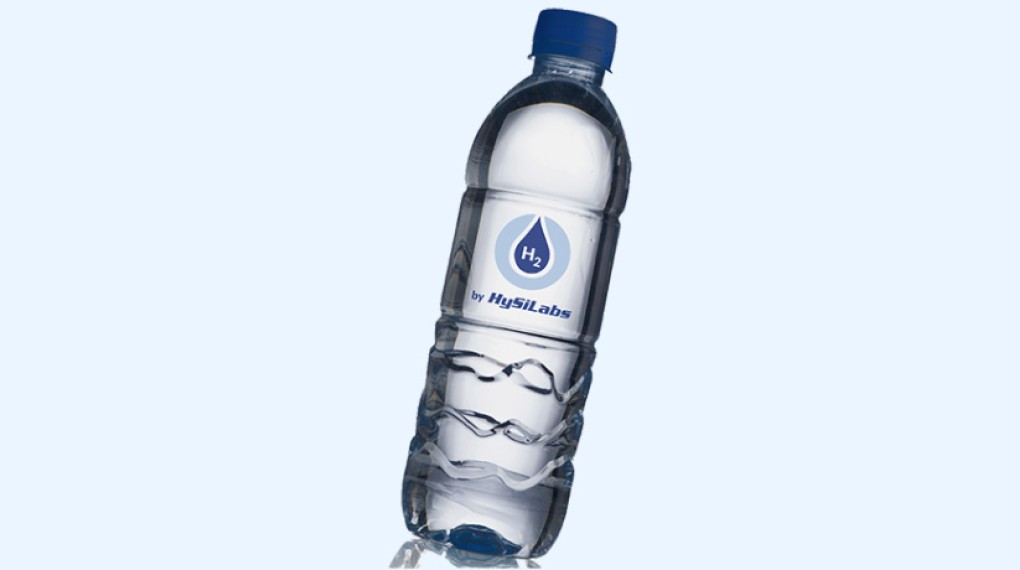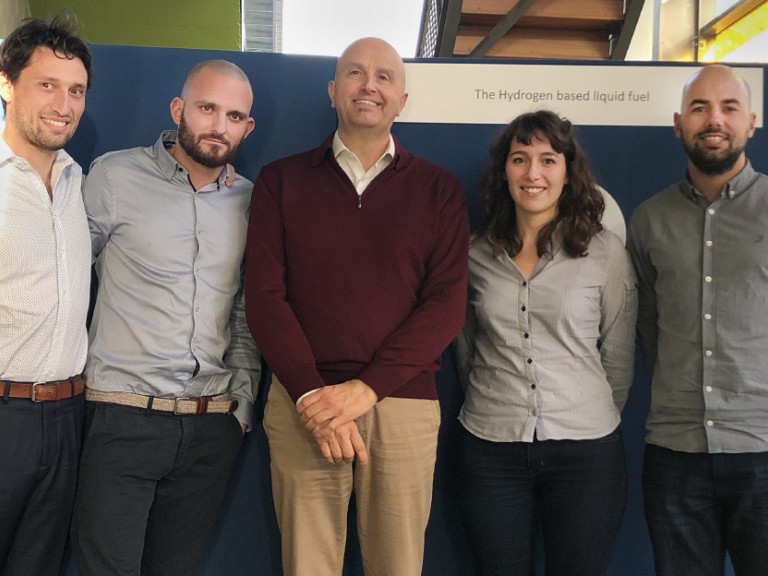Everyone (or almost everyone) knows that as a source of low carbon energy, hydrogen has great potential in cities of the future. And yet, its use is still very limited. The issue: its gaseous form, which makes it difficult to transport and store. Far from being content with this inevitability, Vincent Lome and Pierre-Emmanuel Casanova were just university students when they made a discovery that will help lift this barrier: by carrying hydrogen with a liquid vector, we can deploy it more easily (and over long distances!), we avoid the dangers of gas and we get rid of high pressure storage bottles. Thus, after 10 years of R&D, they create HySiLabs, a disruptive technology that fully meets the challenges of the energy transition.
Testimony

Winning an EDF Pulse award is getting recognition from a great leading group of the energy sector and marvelous prospects for the future.

It is this major innovation that the Grand Jury wished to award during the 5th edition of the EDF Pulse Awards in 2018. HySiLabs, winner in the “Smart City” category, marks a turning point for hydrogen to take off. Combined with a fuel cell, it could serve as an environmentally friendly “fuel” for electric vehicles and bicycles, or provide heat and electricity to eco-neighbourhoods in the cities of tomorrow. And this is not just a dream: following a fundraising earning 2 million euros in May 2018, the HySiLabs process should soon be industrialized and marketed to major players in energy and mobility. In short, a liquid affair that is quite solid to develop green energies!
-
€2M
raised in May 2018
-
7x
7 times more hydrogen transported with a liquid vector
-
10s
only to release hydrogen on demand

Your browser does not support javascript.
To enable you to access the information, we suggest you view the video in a new tab.

The Team
This Landes-based team combines its collective expertise in emergency medicine, software architecture, IoT and electronics to achieve a common goal: to treat victims more quickly using new technologies.
4 questions to HySiLabs
Where did you get the idea for this startup?
 My business partner Vincent and I are passionate about innovation and the energies of tomorrow. During a scientific collaboration Vincent had the opportunity to collabora...
My business partner Vincent and I are passionate about innovation and the energies of tomorrow. During a scientific collaboration Vincent had the opportunity to collabora...
Any recent good news?
 To overcome the last remaining technological barriers and strengthen our team, we plan to recruit 8 people in 2018, and we have just completed a 2 million euro fund-raisi...
To overcome the last remaining technological barriers and strengthen our team, we plan to recruit 8 people in 2018, and we have just completed a 2 million euro fund-raisi...
What is the most unexpected thing that your startup has made you do?
 We travelled all over Europe and even Asia in search of partners, on such a small budget that we stayed in local people’s homes to save money and pay for entry to various...
We travelled all over Europe and even Asia in search of partners, on such a small budget that we stayed in local people’s homes to save money and pay for entry to various...
In what way does your project revolutionise your category?
 Hydrogen is now seen as a key element in the energy transition, but its use remains limited due to its specific storage and transportation requirements and needs. HySiLab...
Hydrogen is now seen as a key element in the energy transition, but its use remains limited due to its specific storage and transportation requirements and needs. HySiLab...
